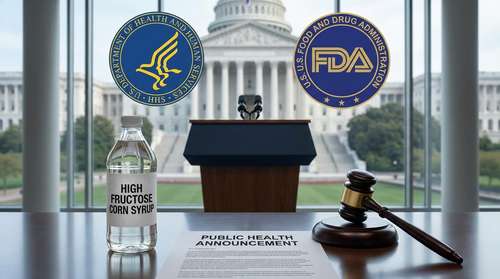Examining Cardiovascular Disease Risk Factors: A Comprehensive Review
Heart disease remains a significant challenge for many of us, and diving into the specifics of cardiovascular disease risk factors can feel like piecing together a complex puzzle. Living in the US, where fast food and sedentary lifestyles are common, it’s no wonder that health professionals are urging us to pay more attention to our heart health. The research brought forward from Korea and the United States clearly shows nearly all individuals who suffered major cardiovascular events had at least one modifiable risk factor. This makes understanding these risk factors not only enlightening but also a potential lifesaver for many.
Each of us has a role in managing our health, and knowing about high blood pressure, cholesterol, diabetes, smoking, and even family history can guide us toward better decisions. With lifestyle changes and timely interventions, you can lower your risk dramatically. Let's break it down as if we're chatting over coffee, making this topic as approachable as possible!
Understanding the Basics of Cardiovascular Disease
In this section, we’ll take a step back to understand what cardiovascular disease really means and why it’s such a concern for so many people. We’re going to cover the foundation of the subject to set the stage for the rest of our discussion.
When we talk about cardiovascular disease, we’re really referring to conditions that affect the heart and blood vessels. From coronary artery disease to stroke, these conditions are largely influenced by common risk factors like high blood pressure, cholesterol, and even stress. Many of these risk factors are modifiable, which means that with the right choices, you can help alter the course of the disease. It’s an eye-opener to realize that just a few tweaks in our habits can lead to big improvements in our overall cardiovascular health.
Living with conditions like obesity or diabetes not only affects physical appearance or energy levels but can also lead to serious heart complications. Imagine your circulatory system as a highway – blockages and pile-ups (caused by deposits of cholesterol) can lead to major accidents, stopping your heart from getting the fuel it needs. It's a reminder that everything we do can create ripple effects on our overall heart health.
Digging Deeper into Modifiable Risk Factors
This section shines a light on the modifiable risk factors that play a pivotal role in cardiovascular disease. We’re going to discuss why elements like high blood pressure and cholesterol are more than numbers on a chart—they're signs telling you to take action!
One of the most significant modifiable risk factors is high blood pressure, which dangerously increases your chance of a heart attack or stroke if left unchecked. When your blood pressure remains high over time, it can wear out your heart like a car engine that’s been pushed too hard, eventually causing systemic damage. If you or someone you love has been grappling with hypertension, adjusting your diet and engaging in regular exercise can work wonders.
Cholesterol also makes the list as a major risk factor. The typical American diet, often high in saturated fats, can lead to elevated cholesterol levels and subsequent buildup in the arteries. In essence, these cholesterol deposits behave like debris on a road, reducing blood flow and creating potential blockages. It’s essential for anyone with high cholesterol to work closely with healthcare professionals who can suggest effective treatment options and lifestyle changes.
Smoking, another notorious risk factor, is equally harmful. The chemicals in tobacco smoke damage the lining of blood vessels and speed up the process of atherosclerosis, a thickening and hardening of the arteries. Stopping smoking can rapidly improve your heart health, much like suddenly removing obstacles from a congested highway. This is one of the best decisions you can make for both your heart and overall long-term well-being.
Obesity, diabetes, and stress management are also critical players in the cardiovascular game. When your body is overwhelmed with excess weight or inadequately managed blood sugar levels, the strain on your heart increases significantly. Think of it as carrying an extra load every day—the additional burden isn’t sustainable in the long run and only puts you at higher risk for chronic conditions.
Lifestyle Changes to Boost Cardiovascular Health
In this section, we’re discussing how simple, practical lifestyle changes can have a profound impact on preventing heart disease. Making even a few adjustments in your daily routine can be a game changer when it comes to cardiovascular health.
Start with your diet. A balanced diet rich in fruits, vegetables, lean proteins, and whole grains isn’t just good for your waistline; it also has a direct impact on lowering cholesterol and blood pressure. Imagine your body as a well-oiled machine, where every piece of food you eat either helps keep it running smoothly or causes unnecessary friction. Mindful eating is a habit that pays dividends when it comes to long-term heart health.
In addition, regular exercise plays a crucial role in mitigating many of the risk factors associated with cardiovascular disease. Whether it’s a brisk walk in the park or an intense session at the gym, any form of physical activity is better than none. Exercise doesn’t just improve your cardiovascular health—it also elevates your mood and disperses stress, which is another big plus for overall well-being. That push you need to get moving might also help in reducing obesity and maintaining healthy blood pressure levels.
Stress management should not be underestimated. Everyday pressures, whether they come from work or personal life, can silently increase your risk for heart disease. Have you ever noticed how tension can physically weigh you down? Engaging in mindful practices such as meditation, yoga, or even simple deep-breathing exercises can help reduce stress and contribute to improved heart health overall.
Regular healthcare checkups form the backbone of this prevention plan. Being proactive about symptoms and working with your healthcare provider can help catch any warning signs before they escalate into a major issue. Routine examinations not only help in early diagnosis but also sometimes provide insights that guide more personalized treatment plans. Trust me, taking a little time for regular self-care is far more valuable than waiting for a major event.
The Critical Role of Early Intervention
This final section emphasizes the need for early intervention and timely diagnosis when it comes to cardiovascular risks. Recognizing early symptoms and risk markers can steer you clear of a disastrous event later on.
Understanding your family history and being aware of the subtle early symptoms can serve as your first line of defense. Even if you don’t exhibit obvious signs, underlying issues like small increases in blood pressure or slight cholesterol imbalances can quietly wreak havoc over time. Early intervention isn’t just a healthcare strategy—it’s a lifestyle choice that underlines the importance of prevention over cure.
The American heart associations and various reputable sources confirm that catching these risk factors early, and making necessary changes, greatly increases your chance of avoiding heart disease later on. While it may seem overwhelming, remember that every step you take, no matter how small, contributes to your overall cardiovascular health. Imagine cutting out a few blocks of highway debris; the smoother the pathway, the less likely accidents are to happen. Now, that’s a journey worth embarking on!
In summary, managing cardiovascular disease risk factors is about understanding the interplay of various elements like high blood pressure, cholesterol, lifestyle habits, and even stress. As you read through this, you might be asking yourself, 'What small change can I make today to improve my heart health?' It might just be that simple decision to take a brisk walk, choose a salad over fries, or schedule a check-up with your healthcare provider. Each of these choices piles up in your favor, building a future where heart disease is significantly less likely.
Remember, taking action now can pave the way for a healthier, more vibrant life ahead. Stay informed, stay proactive, and keep your heart in the best possible shape for years to come!




